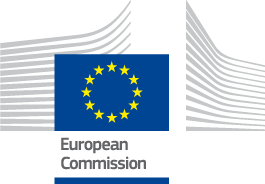

Good Practice Project
Mussel farming, an important sector on Brittany’s coast, generates co-products from the washing, sorting, and grading of shellfish, which are disposed of in the sea or on the beach. These discharges have a bad impact on the coastal environment, polluting the water and annoying residents and other users of the beach.
Cultimer France SAS, a mussel and oyster farmers’ cooperative, has been studying the opportunities these products present since 2017. The Methacoque project, carried out in collaboration with local research institutions, showed that mussels could be a good source of methane. This led to new studies to get essential scientific and technical data to enable the practical implementation of this new use.
Through this FLAG project, Cultimer is finally putting lessons learnt into practice, by proving the technical and economic feasibility of using mussels as an energy source. The cooperative carried out a pilot to establish whether adequate volumes of the shellfish biomass could be turned into the fatty acids required to yield methane as energy.
The pilot plant is now running and able to process 50 kg of undersized mussels per day to turn them into methane. This is currently sold to external methane production plants, meaning that the shellfish farmers do not have to deal with the administrative burdens involved in producing methane. However, in the long term, this activity is seen as a potential new activity which can be added to the production chain in order to diversify and increase incomes.
50 kg of mussels produces 0.63 m3 of methane, equivalent to 0.75 l of gas, or 6 kWh of electricity. This practice has the advantage of turning the biomass of undersized mussels into a valuable product.
This project is intended to be reproduced and adapted to different mussel farm configurations in the Emerald Coast – Rance – Mont-Saint-Michel Bay area and beyond. The approach could also be applied to the treatment of organic waste from other fisheries, fish farms and food processors, allowing them to cut their environmental footprint by reducing waste and producing methane which can be used for various purposes, such as heating.
Lessons: COVID-19 has had a major impact on the project’s schedule, causing delays in both manufacture and administrative procedures. To keep the project on schedule, it was essential to carry out upstream preparation by making the institutional decision-makers aware of the project’s relevance. Moreover, the fact that the technical implementation of the project was entrusted to a single service provider undeniably allowed for rapid decisions and effective reactions.
Contribution to CLLD objective: (c) enhancing and capitalising on the environmental assets of the fisheries and aquaculture areas, including operations to mitigate climate change
| Total project cost | €195 000 |
|---|---|
| FLAG grant |
€156 000
|
| Beneficiary contribution |
€39 000 |
| Timeframe of implementation | From Feb 2020 to Feb 2021 |
|---|---|
| Sea Basins |
|
| Type of area |
|
| Theme |